- Home
- Peter O'Mahoney
Power and Justice
Power and Justice Read online
Power and Justice
PETER O’MAHONEY
Power and Justice: A Legal Thriller
Peter O’Mahoney
Copyright © 2019
Published by Roam Free Publishing.
1st edition.
All rights reserved. No part of this publication may be reproduced, stored in a retrieval system, or transmitted, in any form or by any means without the prior permission in writing of the publisher. This is a work of fiction. Any resemblance to any person, living or dead, is purely coincidental.
Cover design by Belu.
https://belu.design
POWER AND JUSTICE
PETER O’MAHONEY
Family is the world’s greatest masterpiece.
Chapter 1
She didn’t fight much.
The girl tried to struggle, tried to fight back with her ailing body, but not as much as the woman expected. It was remarkably easy getting the girl into the basement under the darkness of night. Easier than she thought it would be. A cocktail of Valium, cocaine, and alcohol would do that.
It was a quiet street, practically lifeless at 3 a.m. The woman made sure of that before she planned her setup. Giant oak trees lined the upmarket street, and during the day you’d expect to see young children dressed in Ralph Lauren polo shirts selling lemonade in front of freshly painted fences. She would never drink that lemonade. She hated the idea of those grubby little fingers squeezing their dirty germs into her juice.
The girl she had tied to the chair had been working as an escort, making herself available through various web pages, hardly even trying to hide her adult profession. Not that she judged the woman for her choices. Life offers many different paths, and the girl in her early twenties tried to do the best she could. At least she was working for the money.
Revenge was so close.
The girl struggled in the chair. Her right arm moved upwards, tugging at the thick rope, but it was tight enough to prevent any large movements. It wasn’t much of a movement, only a reaction from her central nervous system, trying desperately to metabolize the overload of drugs. Even without the massive intake, the girl couldn’t call out anyway. The cloth tied around her mouth made sure of that.
As the woman wiped down the edge of the wooden dining chair, taking care of any fingerprints, she spotted the scratches on the girl’s arm, right in the crease of the elbow. It made her sigh. She’d seen that so many times before, more times than she cared to count, and she empathized with that pain so much. But even as she fought her depression, fought back the black dog that tried to attack her, she could never think about turning to the artificial highs that illicit drugs provided.
The girl groaned and moved again. She was getting louder.
Under the low roof of the damp, enclosed basement, the woman moved a box to the right, emptying the space around the girl. There were tools and half-empty paint cans to her left, boxes of memories to her right, and old gardening tools near the door. Despite all the mess, despite all the distractions, the girl was the focus in the cramped space, directly under the only fluorescent globe hanging from the roof.
The woman had been wronged so many times by the same man, and this was her revenge. She wasn’t going to let him get away with what he’d done to her.
This was her reckoning.
The girl started to swing her head left and right. Maybe she was trying to see where she was, or maybe she was trying to shake the blindfold off her eyes. The girl tried to yell, the cloth around her mouth muffling the scream.
The woman couldn’t let her make a noise, not with the man upstairs in the house. He couldn’t know she was there yet. Not when payback was within her grasp.
The woman had no choice but to swing her left hand across the girl’s face.
The girl’s head fell to the side, her voice and movements silent again. Maybe she had hit her too hard. She hadn’t wanted to hurt the escort, she had nothing against the girl, but she was a necessary pawn in the plan.
Part of the retribution.
The woman checked for a pulse. It was slight. The man upstairs should find the girl the following afternoon—hopefully, sooner. Despite her choices, she hoped the man found the girl before too much brain damage occurred.
The woman knew she should have hired someone to do the work, someone with the skills to perform the delicate task of hauling a drugged-up escort into the basement. Those people would have made sure the girl survived. They would have been cleaner, quieter, perhaps even more effective.
But none of that mattered now.
Her work was done.
And revenge was a sweet, sweet feeling.
Chapter 2
In life, some places are etched into memory, places that are scratched so deeply into the recess of one’s mind, that no amount of drugs, therapy, or alcohol will ever erase what happened there.
For Tex Hunter, the Metropolitan Correctional Center in Chicago is imprinted into his mind, branded onto his brain like a mark on a bull. It had been more than thirty years since the criminal defense attorney first stepped inside the walls of the building, thirty years since his life changed forever. The building still smelt the same, the furniture hadn’t changed, and the same beige coat of paint, now faded and cracked, lined the walls. Some of the same guards still hustled through, although the years had taken a toll on their vibrancy.
He was only ten years old when he was first escorted through the narrow halls, an impressionable boy who didn’t understand what was happening, didn’t understand why people in authority were harassing him. They questioned him for six hours straight, stuck at the metal table in the windowless room, not even allowed to take a toilet break. The cops pressed him so hard, so ferociously, screaming in his face, squeezing every piece of information out of his young brain. He cried, they yelled, and he told them everything they wanted to hear before they would allow him to see his father.
By the time they were done, he wasn’t even sure of the truth anymore.
“Still defending killers?” Prosecutor Michelle Law stood in front of Hunter, lifting her chin to stare up at him.
Hunter grinned and ran his hand through his thick black hair. “As long as you keep trying to put innocent people away, I’ll keep defending them.”
The low ceiling on the second-floor foyer added to the sense of claustrophobia, enhancing the sense that this was a place where hope was lost, not found. A long reception desk sat behind the wall of security checkpoints, with a forgotten row of vinyl seats to the left and two dying indoor plants to the right. Beyond that, there were elevators to the various floors and numerous signs detailing the strict rules that governed the building. A rarely used brown couch sat near the exit. Hunter understood why the chair looked outdated but still unused; this was not a place where anyone wanted to linger.
“I’ve always thought your title was misleading, Tex.”
“How so?” He stepped closer to her.
“It’s missing the word ‘and’. It shouldn’t be Criminal Attorney Tex Hunter; it should be Criminal and Attorney, Tex Hunter.”
“Witty.” He smiled. “How long have you waited to say that?”
“I’ve been sitting on that joke for months.” Law stood straight, rigid, with the type of posture that comes from taking out her self-hatred on hours of yoga every week. “I haven’t seen you in a while. I actually thought that you were finally going to come and join us in the prosecution, over here on the right side of the law. Your skills would be used so much better fighting for the right side of the law, and you’d finally have a chance to clear your conscience.”
“A clear conscience is usually a sign of a bad memory.”
She let out a laugh.
The guards turned around. Laughter was
not something they were used to hearing.
“I suppose you live by the defense lawyer mantra—just because your client did it, doesn’t mean they’re guilty.”
“Never forget—every criminal was innocent once.” He tapped the area over his heart, a mischievous grin on his face. “My only hope is that they come to me before they’re condemned by your rules.”
“Oh, how honorable. You know, if you really wanted honor, then you should come to my office and apply for a position within my team. We’re not all about money and nice suits over there; we’re about the law and finding justice. We get a kick out of putting guilty people away to protect the innocent.”
“What even is guilt? Or innocence?” Detective Daryl Browne interrupted, appearing in front of them. As he stood next to the lawyers, he rubbed his plump stomach in the same way a pregnant woman does, almost looking proud of the years of alcohol abuse that it took to develop it. “What even is justice?”
Hunter turned to the cop. “You wouldn’t know. You’ve never been interested in any of them.”
Standing next to the lawyers, Browne appeared as a contrast to the field of justice—the lawyers, fit and tall, were perfectly dressed, and the detective, round and short, had his shirt untucked at the front. There was enough artificial glow from the fluorescent lights for Hunter to spot the abundance of ear hairs on Browne—not something he wanted to notice but something he couldn’t stop looking at.
“It won’t be long before the handcuffs are on you, Hunter.” Browne touched the badge on his belt. “You’re just like your father. It’s in your blood, in your DNA, and I’ll take great pleasure in the day I see you behind bars.”
“My parents are innocent, Browne. You know it, and I know it, so why must we always have this dance? Haven’t you got better things to do?” Hunter stepped forward, leaning closer to the detective to talk near his ear. “Like extorting money from small business owners.”
The comment piqued the prosecutor’s interest, and Browne stepped back, the panicked expression on his face signaling that Hunter had rattled him.
Hunter smiled. Good.
“The only thing I know for sure is that your parents are as guilty as your client in that room.” Browne’s voice lowered as he quickly changed the subject. “He’s got a target on his back in here. He’ll be dead soon if he stays behind bars. A dead girl was found in his basement, I hear. It’s funny—Robert Sulzberger presented himself as a moral politician, but it was only a front, a marketing tool. He’s as bad as the rest of them. It just goes to prove the old saying, ‘power corrupts.’” Browne rubbed his stomach again, stepping back from Hunter. “You know, when Sulzberger made the decision to rezone the building status of the veteran’s community center, so that the developers could move in, we all started to get a sniff of what he really was. The character that he presented to the public was a front—he looked good when he won that reality television show Island Survivor, but it was a lie—just the trickery of television. And sure enough, soon afterward, we find a dead girl in his basement. They all crack, Hunter. Just like your parents. Everyone thought they were normal people, living an ordinary life, but in reality, they’d buried those girls six-foot under.”
Hunter made up the space between them again, and Browne’s hand went to his holster on reflex, his face covered with fear.
“Settle down, boys. This isn’t a schoolyard.” Law threw her hands out, stepping between them. “And I don’t feel like being a witness in a case about the lawyer who beat a cop in the foyer of a prison.”
Browne grunted, stepped back from Hunter, and bumped into the wall. “I’ll get you, Hunter.”
He mumbled as he walked to the elevators, scratching his behind as he went.
“You always had a way with words, Michelle. One of your many talents.” Hunter watched the detective enter an elevator, then turned back to his University of Chicago Law School alumni. “You’re more than a pretty face. And it is a very pretty face.”
“Thank you, Tex.” Her voice had softened, although the same stoic look remained. “But flirting will get you nowhere with me. I’m immune to it.”
He shrugged with a grin, showing off his dimples.
Brushing the dust off the shoulder of her jacket, she continued, “I heard that you might be taking on the Sulzberger case. I hope you do because I enjoy our little battles in the courtroom.”
“You might even enjoy it enough to break out into a smile.”
“I don’t smile much these days, Tex, but I’m sure most women would smile for you.” Her mouth cracked at the corners, a slight grin sneaking out. “I’ve just been to a meeting with Cindy Mendel at City Hall, and we were talking about missing persons’ cases. Your name came up because she even suggested that some of the old cases might be connected to your father. She’s passionate about helping young people, but they’re not the cases I live for. I live for cases like Sulzberger’s.”
“Do you know the Sulzberger case well? He’s only been in here a day.”
“He’s big news around here. A name like that in prison, well, I’ve heard that he won’t last long. He’ll be dead within a year if he stays behind bars. A lot of status goes to the prisoners that kill big name detainees. If you take this case, it’ll be more than just another job; you’re going to have to fight to keep him alive before he even gets to trial.”
“It sounds like you know Robert Sulzberger personally.”
“Not personally, but I’ve always been a reality television fan. Robert Sulzberger was the oldest guy ever to win Island Survivor. You don’t get bigger reality television stars than that, but he’s also the man that went into politics on one idea, and then turned on his own people. The story was front-page news for weeks.” She smiled, but it was awkward. “I don’t want him to die, but if he killed the girl, then he has to do the time. And if he does the time, he dies.”
“Thanks for the pep talk. It really lowered the pressure on me.” Hunter returned the smile. “Hopefully, I’ll see you soon.”
He turned and walked down the narrow corridor to the interview room. He knew his way through these halls much too well, and the overriding smell of fear was something that he would never enjoy.
When he reached the door to the interview room, he paused next to the prison guard.
He understood what entering the door meant. A high-profile client meant months of stress, scrutiny, and burnt out adrenaline reserves. It meant his face was going back on news bulletins, with competitive reporters hustling outside his office, and people yelling at him in the streets again. More significantly, perhaps more painfully, it also meant his father’s legacy, the long shadow cast by the murders of eight innocent girls, would be thrown back into the spotlight.
But he hoped, as he always did, that the wild ride was going to be worth it.
Chapter 3
As Tex Hunter stepped into the meeting room, Robert Sulzberger didn’t move. Nothing was easy for Sulzberger at that moment—not his meals, not his new cellmate, not his lack of freedom.
He stood near the concrete wall, arms folded across his orange jumpsuit, hair a mess, his eyes staring at the floor. He’d spent ten years fighting for the ideal of freedom in the United States Army, traveling across continents, fighting dust and smoke, bombs and people. And now, in his own country, in his home city, that freedom had been taken away from him.
Although the space in the meeting room was tight, only just big enough for two chairs and a small desk, it was the most space he’d had in twenty-four hours. The walls were an off-white, as were the chairs. The round metal desk in the middle of the room looked like it was placed there twenty years ago, and hadn’t been cleaned since.
“Robert Sulzberger.” Hunter moved forward, holding out his right hand. “My name is Tex Hunter, the defense attorney that you called to take on your case.”
“Hello.” Sulzberger shook Hunter’s hand with a tight grip but didn’t raise his eyes from staring at the ground. He smelt like he hadn’t had a show
er in the twenty-four hours since he’d entered the building, but that was common for most males on their first visit to prison, even ones that were the height and width of Robert Sulzberger. “Thank you for coming at such short notice.”
“Firstly…” Hunter placed his briefcase down on the table littered with deep scratches. “This meeting is to determine whether or not you would like to hire me, and whether I would like to work with you. As I’m here in my capacity as an attorney, anything you say will be covered by the attorney-client privilege, even without the exchange of funds.”
“I would.”
“You would what?”
“I would like to hire you to represent me.”
“That’s a very sudden response.”
“I know you. Everyone knows you. You’re the man I want in my corner to fight this.”
“We haven’t discussed costs yet.”
“I have no worries about your retainer and ongoing fees.” Sulzberger held up his right hand. “Your assistant told them to me over the phone. If you take on my case, I’ll transfer your retainer as soon as I have the ability. I’ve heard about you as a lawyer. I’ve read about you in the paper. Seen you on the news. And your history…” He shrugged. “Well, the whole country knows your family history.”
Hunter had heard that a lot from his new clients.
His family’s past had been the subject of many journalism files, repeated television documentaries, and even a college course studying the media reporting of the trial of his parents. His name alone presented him with substantial amounts of work. When faced with a criminal conviction, the newly convicted naturally turned to the man that they felt was already on their side.
“Then we should get started, Mr. Sulzberger.” Hunter unbuttoned his suit jacket and sat down at the desk. “I had a brief read of the police file on the way here. An unidentified woman was found unresponsive in the basement of your house in Lakeview twenty-four hours ago. When the paramedics arrived, they declared her deceased within an hour. It was in your home, and when questioned at your office, you admitted that you were the only one home the night before. After questioning, they charged you with her murder in the first degree. They haven’t been able to identify the girl yet, and she’s currently referred to as Jane Doe.”

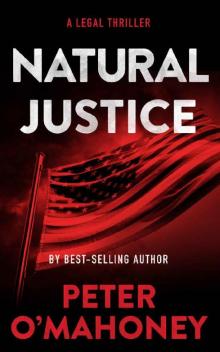 Natural Justice: A Legal Thriller (Tex Hunter Legal Thriller Series Book 6)
Natural Justice: A Legal Thriller (Tex Hunter Legal Thriller Series Book 6)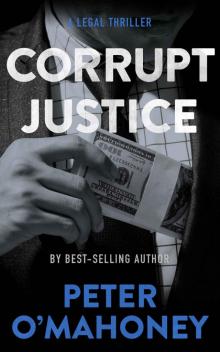 Corrupt Justice
Corrupt Justice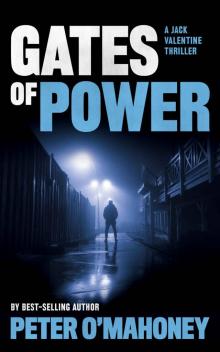 Gates of Power
Gates of Power Bill Harvey Collection
Bill Harvey Collection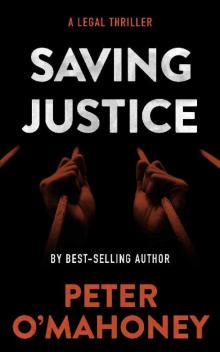 Saving Justice: A Legal Thriller (Tex Hunter Book 5)
Saving Justice: A Legal Thriller (Tex Hunter Book 5)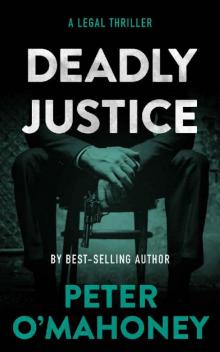 Deadly Justice: A Legal Thriller (Tex Hunter Book 4)
Deadly Justice: A Legal Thriller (Tex Hunter Book 4) The Shooter
The Shooter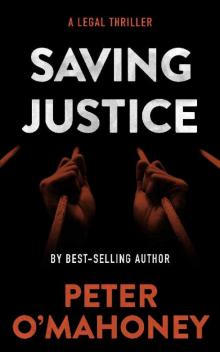 Saving Justice
Saving Justice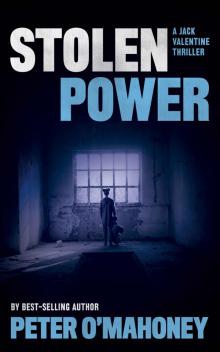 Stolen Power
Stolen Power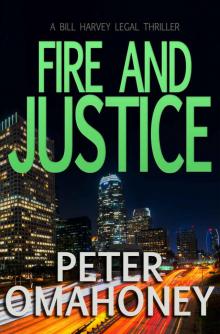 Fire and Justice_A Legal Thriller
Fire and Justice_A Legal Thriller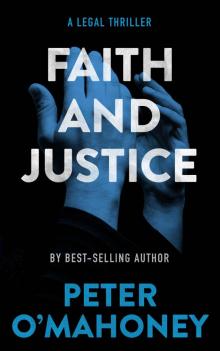 Faith and Justice
Faith and Justice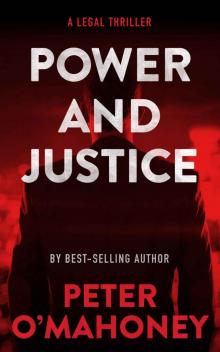 Power and Justice
Power and Justice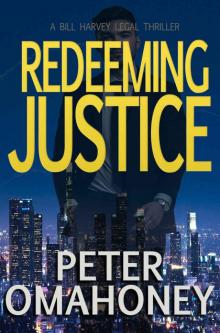 Redeeming Justice: A Legal Thriller (Bill Harvey Book 2)
Redeeming Justice: A Legal Thriller (Bill Harvey Book 2)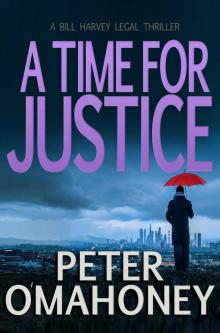 A Time for Justice: A Legal Thriller (Bill Harvey Book 4)
A Time for Justice: A Legal Thriller (Bill Harvey Book 4)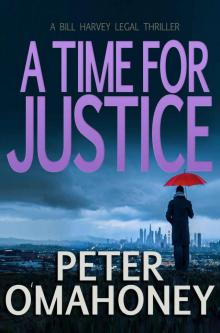 A Time for Justice_A Legal Thriller
A Time for Justice_A Legal Thriller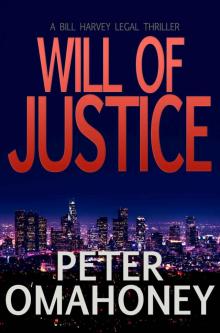 Will of Justice: A Legal Thriller (Bill Harvey Book 1)
Will of Justice: A Legal Thriller (Bill Harvey Book 1)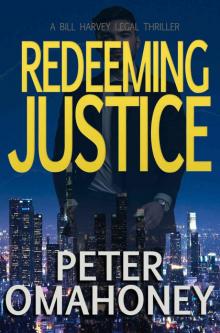 Redeeming Justice_A Legal Thriller
Redeeming Justice_A Legal Thriller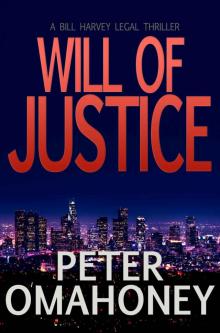 Will of Justice_A Legal Thriller
Will of Justice_A Legal Thriller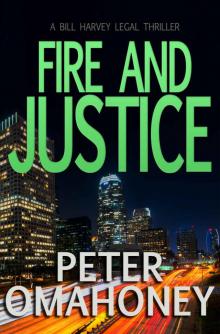 Fire and Justice: A Legal Thriller (Bill Harvey Book 3)
Fire and Justice: A Legal Thriller (Bill Harvey Book 3)